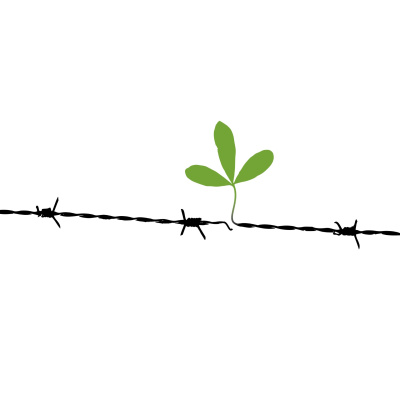
In Polish humanities, trauma is discussed more often than ways of overcoming violence. During the conference ‘(Post)dependency resilience. Attempts to break free from violence in literature and culture’, researchers, practitioners and artists will propose a different approach and look to literature and culture for clues on how to learn to regain strength. ‘Our conference is distinguished by its diversity of voices and openness to different perspectives,’ says dr hab. Magdalena Horodecka, prof. UG at the Institute of Polish Philology at the University of Gdańsk.
The international conference ‘(Post)Dependency Resilience. Attempts to break free from violence in literature and culture,’ which will take place on 20-23 October this year, will be an opportunity to reflect on the strategies of survival and creative resistance developed by literature and culture in the face of violence, from the experiences of the 20th century to contemporary conflicts and crises. It is also a space for different communities to meet: scientists, artists, teachers, people of culture and residents of Gdańsk.
‘We live in times of such poignant psychological crises, stress, tension and overstimulation that we are increasingly looking to literature and culture, among other things, for respite and suggestions on how to learn to regain our strength,’ says dr hab. Magdalena Horodecka, prof. UG, from the Institute of Polish Philology.
The researcher explains that research has been ongoing for years on evidence of trauma in the cultural texts of Poland and Central and Eastern Europe: ‘The conference is an attempt to take a new perspective, which is still underrepresented in science and education. Our goal is to show the presence of descriptions of overcoming experiences of harm in literature and art to a greater extent, and thus, perhaps, to support in each of us the ability to build personal resilience, i.e. mental resistance, which is particularly needed in times of growing mental crises.’
During the conference, researchers will consider how literature, art and culture become a space for resistance, working through violence and building new forms of community. Their perspectives will be presented by eminent humanists and practitioners, including prof. Michał Bilewicz, prof. Stefan Chwin and guests from Utrecht, Brock University and the Université de Lorraine.
‘There are certainly no simple answers to the question ‘How to build resilience and community in a world full of tensions?’ However, literature and psychology point to several important areas, such as storytelling about difficult experiences, the ability to name one's emotions and express them - not only through words, but also through images, dance and sound. Psychological research and literary evidence also show the enormous role of conscious contact with the body and contact with nature,’ explains the literary scholar.
Prof. Magdalena Horodecka points out that the most difficult thing is to build community, because it requires awareness of one's own and inherited wounds - e.g. from our parents and grandparents: ‘How to think about the so-called ‘inheritance of trauma’ and what we can do in this area will be discussed by, among others, prof. Michał Bilewicz, author of the book “Traumaland”, in a lecture entitled ‘What can contemporary psychology of trauma and resilience offer to the humanities?’ - she informs. The lecture will take place on 20 October at 2.30 p.m. in the University of Gdańsk Library.
Pluralism and openness to different perspectives
The event will also be attended by artists and cultural animators, as well as practitioners of mindful living. ‘Our conference is distinguished by its pluralism and openness to different perspectives. In addition to academic papers on resilience in literature, film and culture, we are presenting an exhibition of paintings by Agnieszka Wielewska and offering free participation in breathing physiotherapy workshops with dr Monika Żółkoś. These events will take place at the University of Gdańsk Library on 20-21 October. On Wednesday, 22 October, we are planning a day of debates with artists, scientists and cultural animators at the Baltic Sea Cultural Centre. On Thursday, 23 October, we will give the floor to students and their thoughts on resilience,’ says prof. Magdalena Horodecka.
Are you wondering how to build resilience in a world full of tension, threats and violence? Or maybe you have found your own effective way? Come and share your perspective.
Admission to all events, including workshops, is free.
____________
Organisers: Faculty of Languages, University of Gdańsk, Baltic Sea Cultural Centre in Gdańsk (NBC)
